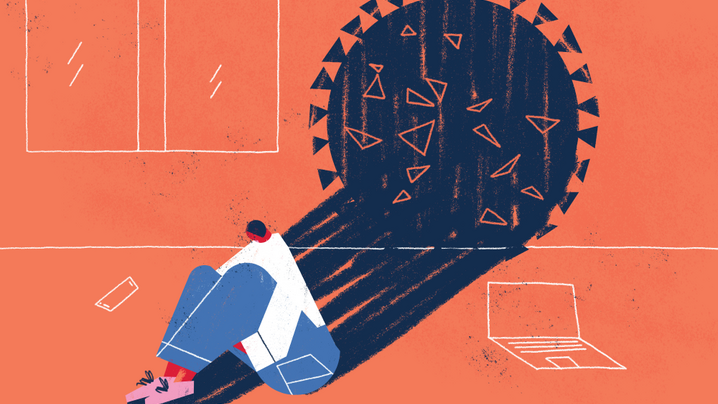
In the sphere of those with whom I live, work, and socialize, there isn’t a single person who hasn’t been profoundly affected by this pandemic. Nationally, we were unprepared for this crisis. For us at City Hall in Albany, Oregon, the transition from “normal life” to an activation of the Emergency Operations Center (EOC) was sudden and more than a little chaotic. We knew what to do for “normal” emergencies; we’d practiced and trained. But a pandemic wasn’t something anybody expected, and we had never stood up a virtual EOC. Advice from public health experts led to a state mandated shutdown as signs of the spread of the virus became increasingly evident. Rapidly climbing infection and death rates, first in the Seattle area, then in New York, convinced many that this was no trifling matter. For some of us, it was a little difficult to accept. For others, sensing the importance of seclusion to stopping the spread, adapted very quickly to a life of quarantine. Fear continued to grow, and the governor issued a stay-at-home order. This all happened pretty quickly.
We scrambled to find masks, to set up frequent cleaning schedules, to draft policy regarding COVID leave, to refine policy regarding teleworking. Continuity of operations, to the extent reasonably possible, along with the safety of employees and our community, were our twin goals.
As chaotic as the descent into this crisis was, the climb back out will be slower and yet more chaotic. We have become accustomed to social distancing, to mask wearing, to designated traffic patterns in grocery stores, but where to next? There’s a certain weariness that’s descended on us. We long for a return to “normal,” but we’re uncertain that will be possible. And yet we don’t really know what the trite and hackneyed phrase “new normal” means. When will we know? When will we be able to relax our vigilance? When will we be able to shake a hand or give a hug? To some degree or another, humans are social beings and need interaction. But something new turns up with discouraging regularity. We can’t seem to catch a break, and the “new normal” is nowhere in sight. What is it going to look like?
Our way of life has suffered severe disruption…and not just from the pandemic.
Social unrest has led to a national introspection on questions of systemic racism. Across the country, this introspection is taking different shapes and being expressed in different ways, many of which call into question long-standing practices and traditions. Even our democratic elections, a key component of our society and our form of government, have taken a beating. Presidential primaries were postponed, conventions cancelled, and election officials in every state are adjusting the process to try to make elections safe. The ground on which we stand seems to be shaking.
This is placing an immense amount of stress on all of us. It isn’t a quick and painful body blow. It’s a long-term load, which is placing enormous amounts of stress on the people we lead and the communities we serve. The “return to normal” will necessarily involve the reshaping not only of business practices, but also of cultural norms. The path to get there will be filled with volatility, uncertainty, complexity, and ambiguity (VUCA).
I first heard the term VUCA during the latter part of my military career, in a graduate program in national security studies at the Air Force Air War College. It was used to describe the post 9/11 international environment; a world in which transnational terrorist organizations, transnational criminal organizations, non-state actors, and asymmetric warfare seemed to have displaced traditional balance of power politics. But that term now seems to describe our current environment – domestic as well as international.
There is no chance of going back. And it’s impossible to tell what the new normal looks like until the dust settles. We’re all waiting and hoping for the dust to settle soon, but what if it doesn’t settle? Perhaps the “new normal” will actually be characterized by volatility, uncertainty, complexity, and ambiguity. What if this uncertainty IS the new normal? My crystal ball is no better than yours, but I do know that local government will play a very big role in helping citizens to cope with, to live in the new normal. Citizens quite often hold their local government in substantially higher regard than their state or federal government. And for good reason. We will live up to those expectations, through hard work and solid leadership, but it’s going to take grit and determination, patience and ingenuity, and a healthy sense of humor. Be in it for the long haul, take care of your employees, and reach out for help and a sympathetic ear.
New, Reduced Membership Dues
A new, reduced dues rate is available for CAOs/ACAOs, along with additional discounts for those in smaller communities, has been implemented. Learn more and be sure to join or renew today!
